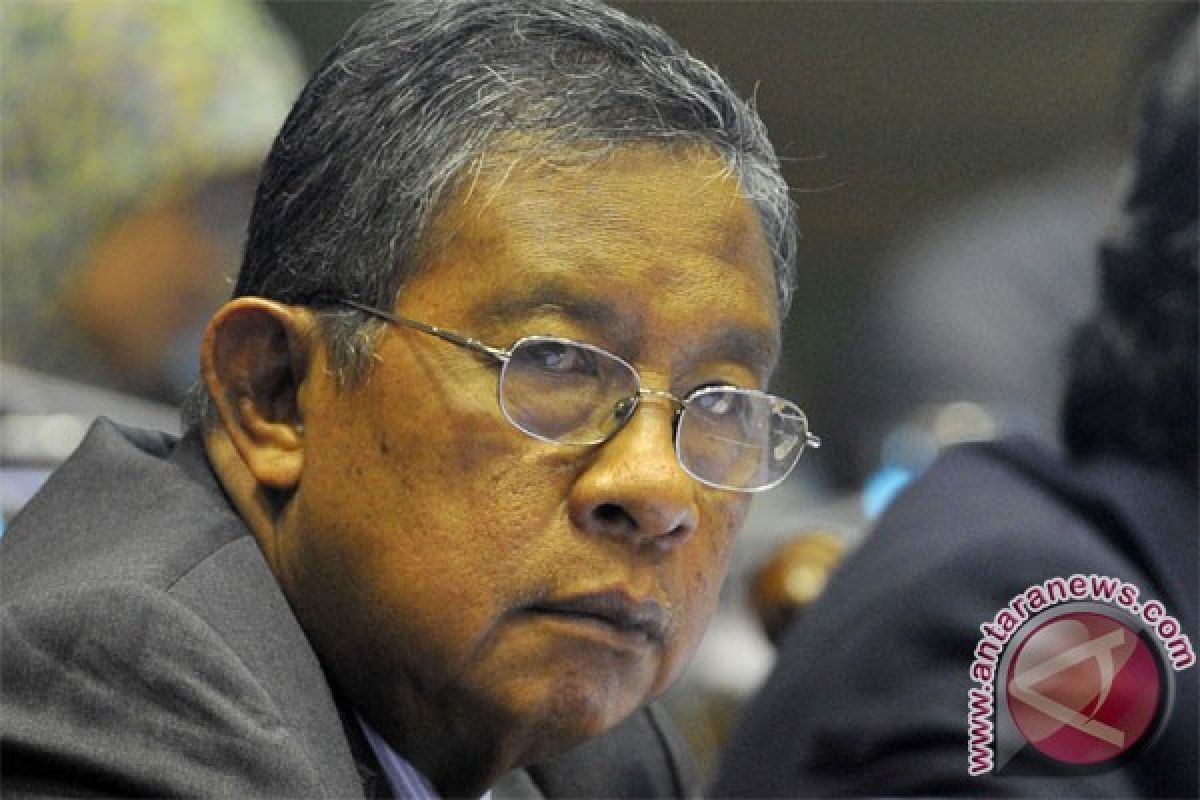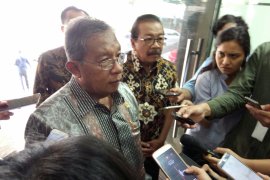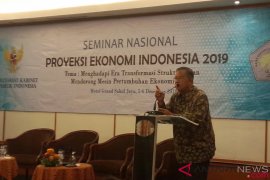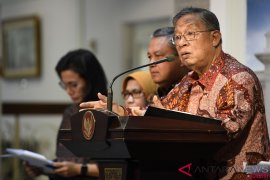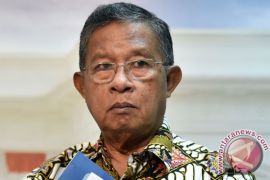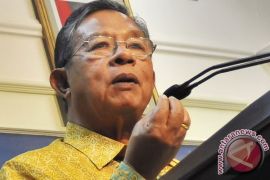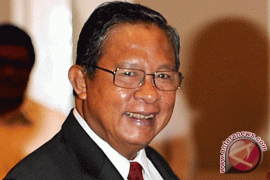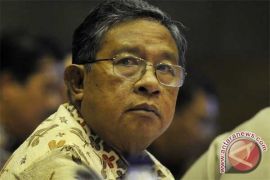A boycott of products will not be a win-win solution."Denpasar (ANTARA News) - Indonesia, as the largest palm oil producer, should anticipate challenges and opportunities as well as maintain palm oil plantations in the future, according to Coordinating Minister for Economic Affairs Darmin Nasution.
"Indonesia should identify unique ways to solve these challenges," Nasution noted here on Wednesday.
The 21st session of the Conference of Parties (COP 21) agreed to limit average global warming to two degrees Celsius, or 3.6 degrees Fahrenheit, above pre-industrial temperatures and to strive for a limit of 1.5 degrees Celsius, or 2.7 degrees Fahrenheit, if possible.
"Therefore, the developed nations should help developing countries to support these efforts," he emphasized.
Nasution stated that the competitive countries could eradicate poverty and protect their people.
"In addition, the competitive countries could protect the environment and economic interests," the minister pointed out.
Therefore, each country should try to figure out a competitive product and develop it.
Nasution emphasized that developed countries should also provide funds to reduce global carbon emissions.
"A boycott of products will not be a win-win solution," he noted.
The minister affirmed that Indonesia had successfully launched Biodiesel B-20 in 2015. This initiative is a major boost to the energy mix.
"The additional demand for crude palm oil (CPO) has increased the price of the commodity. The price of CPO rose slightly to US$565 per ton from US$535 per ton following the implementation of the biodiesel program," the minister claimed.
Earlier, the Indonesian government had taken steps to encourage the downstream palm oil industry as part of its efforts to maintain the price of CPO.
"We continue to encourage and develop the downstream palm oil industry. The exports of CPO have reduced as it was absorbed by the derivative industries," Industry Minister Saleh Husin explained here.
The minister noted that CPO production had generated US$21.7 billion in foreign exchange from exports in 2014, while the production reached US$18.6 billion in 2015.
The palm oil industry has absorbed six million workers.
"We must continue to develop the industry. CPO has become a strategic sector in Indonesias economic development," the minister remarked.
All stakeholders should find a way to utilize palm oil production, particularly from independent plantations.
"Independent plantations only produce 2.5 tons, which is lower than the production of plasma plantations," the minister pointed out.
The existing public service agency (BLU) for palm oil should be optimized to replant palm oil.
"The price of palm oil is not too cheap. The BLU can maintain the price by increasing the absorption of biodiesel," the minister explained.
The absorption of biodiesel should be increased to raise the price of palm oil.
With regard to the French governments policy, the minister affirmed that the country was keen to protect its CPO products. As a result, Indonesias CPO products could not compete with their French counterparts.
(Uu.A063/INE/KR-BSR/A014)
Editor: Priyambodo RH
Copyright © ANTARA 2016
